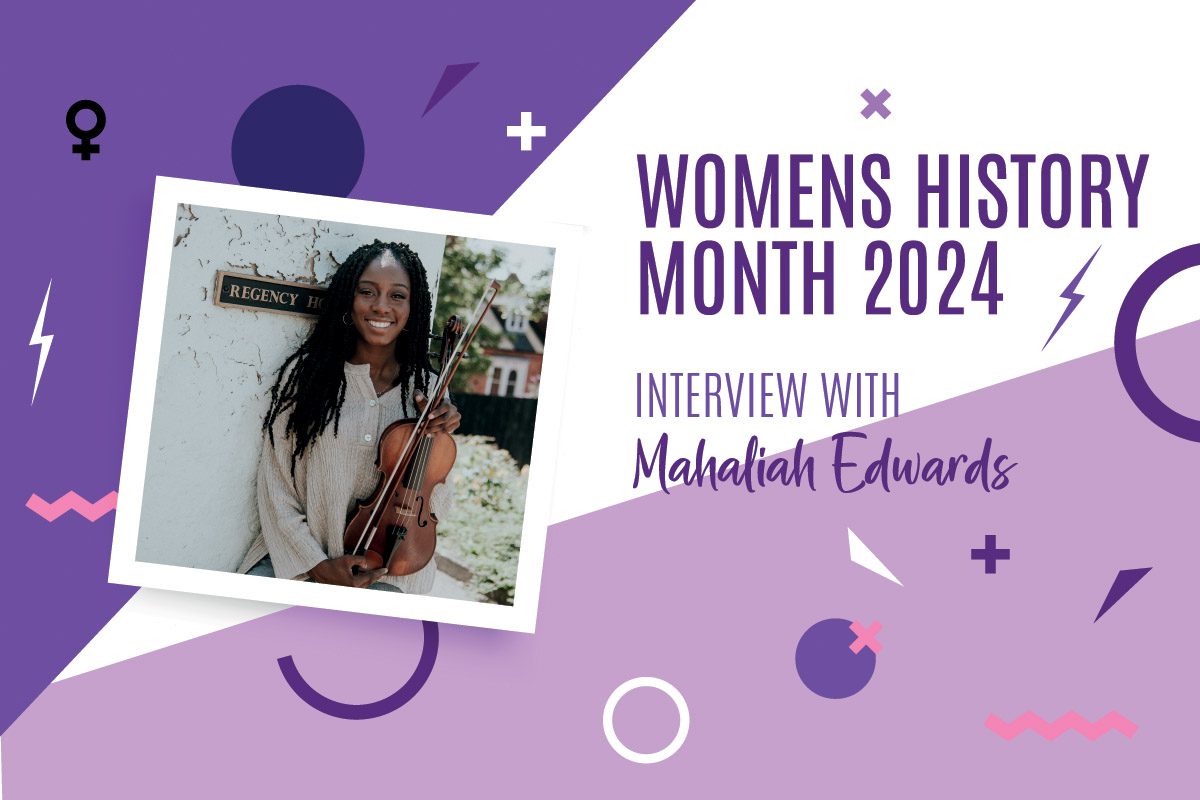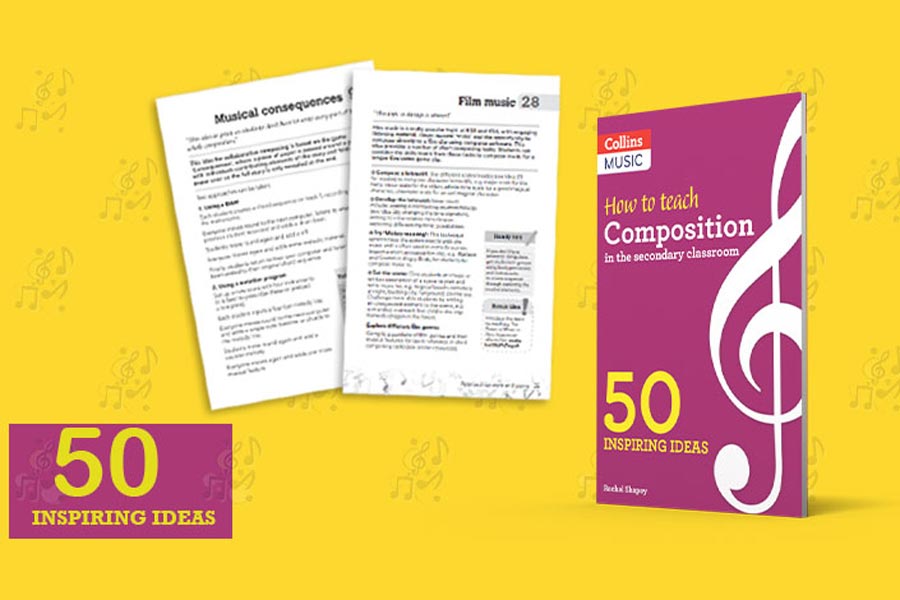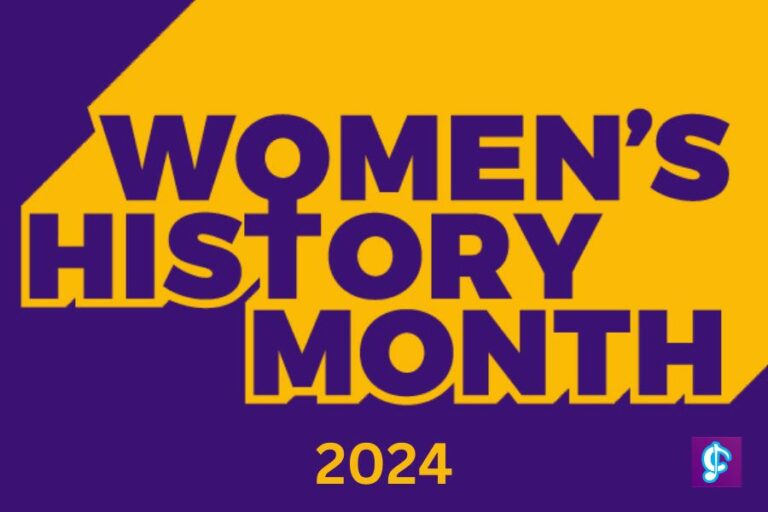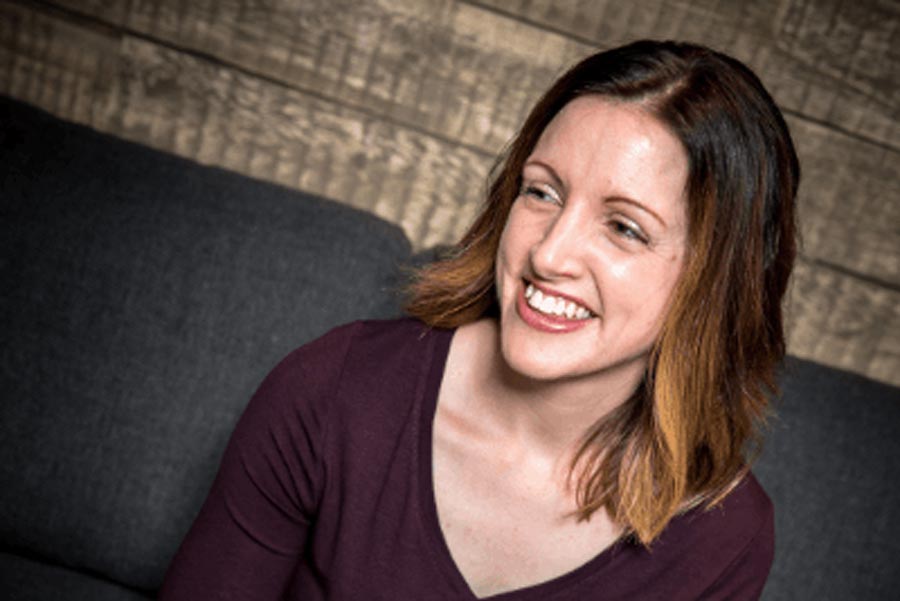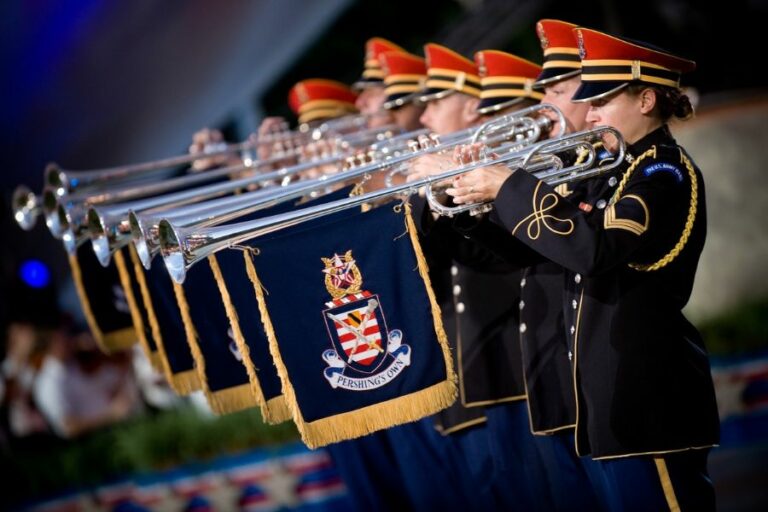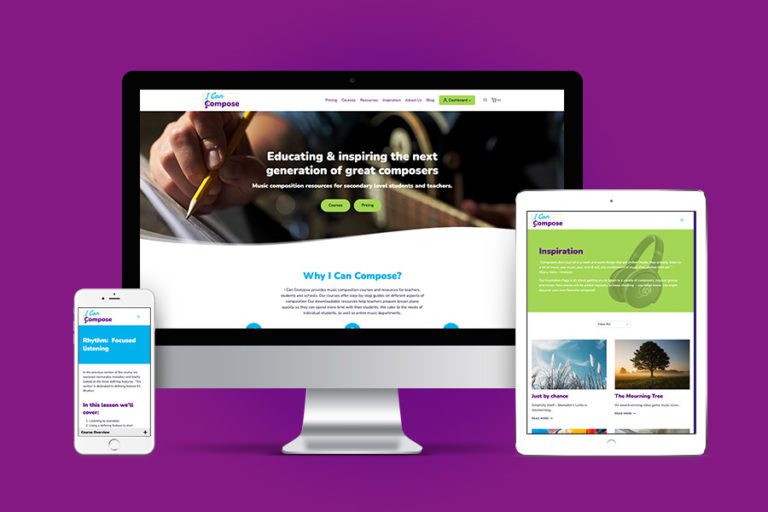Mahaliah Edwards is a freelance violinist, diversity practitioner and ambassador for Black Lives in Music and an educator at Music Masters and teacher of cultural development at Cranleigh School. Here, she shares the different musical opportunities she’s had and how her own education drives her to be a change-maker…
Tell us about your musical journey growing up…
It’s only just recently that I’ve realised that I’ve really surrounded by music my whole life. No one in my family is a professional musician but there was always music playing in the house, lots of singing and making up songs. My mum and older sister had piano lessons growing up so they could play a few chords etc. I grew up going going to a Pentecostal church where I sang (reluctantly) in the children’s choir and there was lots of musical excellence there when it came to gospel music. I was very fortunate to attend a state primary school where music was highly valued so from an early age I was playing in recorder ensembles doing lots of singing and I remember the whole school recorded a live CD!
On the side I started taking piano lessons at 7 but they were short lived. I had a few violin lessons around that time but I didn’t begin learning violin properly and consistently until around age 11 so I was a relatively late starter to violin but not to music. I think I had lots of cultural and music richness in my life which has contributed to me having an appreciation and interest in a various traditions and genres in my personal life and professional capacity.
As a violinist, you have a versatile approach (performing jazz, classical and folk) – why is this important to you?
For me it is really important to recognise that all music is valid and genre hierarchies are an unhelpful construction that especially as educators we must fight against. As a teacher, I want the pupils I teach to feel like they can see themselves in the music they learn, whether it’s their tastes, their cultural heritage or broadening their musical palette. This idea of recognition is important to me because so often as a child I felt like I had to keep my music skills learned from growing up in church a secret. I was informally learning how to sing in multiple part harmonies, everything by ear and by rote and recreating and understanding complex rhythms with ease – NONE of the skills were ever recognised within my formal education so I grew up thinking these skills were “less than” or invaluable and that music from my own cultural heritage was inferior. It was only really as I finished my undergraduate studies that I started to grapple with and unlearn the assumptions imposed by the musical institutions I’d receive my education from.
On your website you’re described as a ‘change-maker’ – what drives you and what’s your passion?
My own musical education drives me to be a change-maker. Whilst I’m very privileged to have attended decent state schools and then a specialist music school and conservatoire, I don’t think it was taught music in a way that was too personalised for me. I got to some key stages in my musical journey with huge gaps in my technique and in some of my musical knowledge which weren’t conducive for someone who would go on into the musical industry. Whilst I’m grateful to the teachers I’ve had and support along the way, I really want to be the teacher I never had for my students. As a black female, working class and in my 20s being a change-maker also means seeing things that others perhaps don’t see or are unaware of and advocating for my pupils where possible and having conversations with other educators about these things. I do this is in my freelance work as a music education consultant and as a diversity practitioner and relationship manager with Black Lives in Music. I’m currently on the ISM council and have just left the board for Awards for Young Musicians who helped me on my own musical journey so having experience as a non-executive director is really crucial in decision making and having influence to make the change we want to see
Can you share more about your collaborations with composers such as Errollyn Wallen and Germa Adan?
Working with Germa was an amazing experience and she is a real role model for me as I’d never even met another professional black female violinist at the point in my life and she introduced me to Haitian music and culture which is really rich and beautiful m. Similarly with Errollyn Wallen, I didn’t realise she was a composition professor at RBC where I studied so having my quartet chosen to perform with her was a great privilege and fun experience.
What is your most memorable musical moment?
I can’t really say I have one but it’s usually the surreal moments during a performance or listening to a student and I just take a moment to realise that despite all the challenges and setbacks, being a musician is a really great job. I’d say, I have had these moments working with some great colleagues on TV jobs l, especially string ensemble ones but equally in the classroom when a violin student has achieved something amazing.
In 2022 you launched the BBC Proms Launch Event – what was that like?
Another surreal moment, speaking to a room full of industry professionals and that placement at the BBC led the way for me to have a 3 parts series on Sounds Connected Radio 3 which was a huge boost to the speaking & presenting portfolio. I’d love to do more of it but very much like the music world, it’s full of talented people and carving out/accepting new opportunities can be tricky.
What are you most concerned about in music education?
I’d say for me, it’s still the idea that lots of children now have access (there are still some who don’t) but the increase in access to music education doesn’t really necessarily guarantee quality or clear pathways for continuing and excelling. Many children drop out and we know that if we want change in the industry there must be investment in education and music being at the heart of that is important. Musics instrinic value does not seem to be valued at times. I’m conscious there are efforts to make it accessible but it should not only be at grassroots but as a young person becomes more experienced and accomplished so that we don’t see drop off rates and headlines about GCSEs take ups being low. Relatedly, I think formal education needs to reevaluate and widen its lense on what musicality is and what it can look like so that more children and young people can see themselves as musical.
What would you like to see happen for women in music over the next 5 years?
I’d like to see more women in positions throughout the industry as we know that women are over-represented in teaching and education, especially at early years and primary school levels – this isn’t always a bad thing but I’d also like to see women and women of colour heavily represented as CEOs, directors, principals of institutions etc. This 360 degree impact on the music industry and education would be transformative. Also I’d like to see more women truly supporting women and helping lift others up the ladder as they climb.
And finally…what 3 tips would you give to any students considering a career in music?
- Don’t confine yourself. Portfolios careers are what most musicians have. Versatility and flexibility are key factors.
- Build your self-esteem, self-belief and confessional so when you have any knockbacks or doubts you can be resilient
- Practice your discipline and keep learning
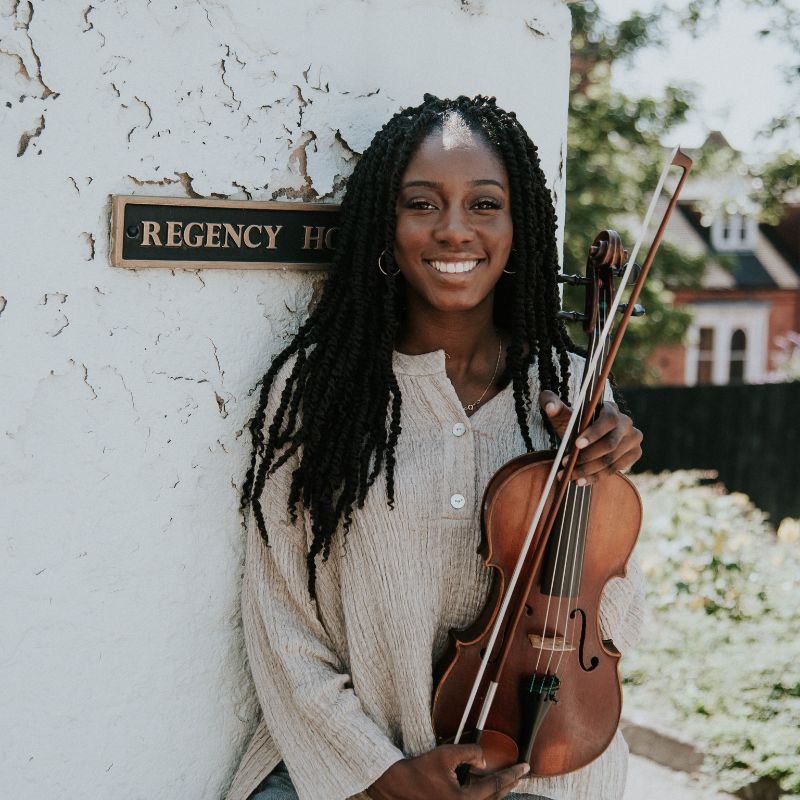
About Mahaliah Edwards
Mahaliah is a violinist, educator and advocate for music, culture and social justice. A versatile musician, she has played in a range of venues from the major concert venues and has performed with artists such as Ed Sheeran, Michael Bublé, Heather Small, Robbie Williams, George Ezra and Rita Ora.
She trained at the Purcell School before graduating from the Royal Birmingham Conservatoire in 2019. Now, Mahaliah enjoys a multifaceted portfolio career of teaching and education work, music consultancy and freelance violinist whilst having some non-executive director roles. She works at Cranleigh School and teaches violin with Music Masters. Mahaliah has recently begun working for Black Lives in Music as a Relationship Manager and Diversity Practitioner. She is keen to continue exploring academically and professionally, having recently completed the Teaching Musician MA at Trinity Laban Conservatoire.
Connect on LinkedIn
Follow on Instagram
Image credit: Olivia Davy-Hoffman
